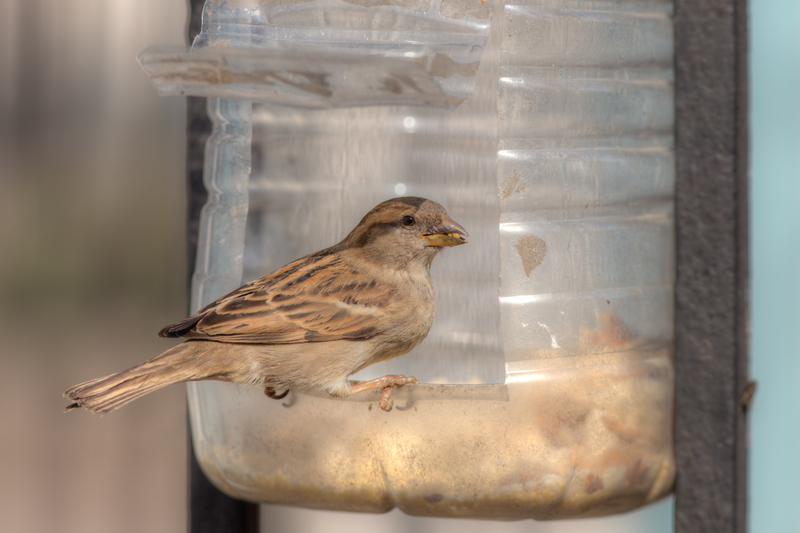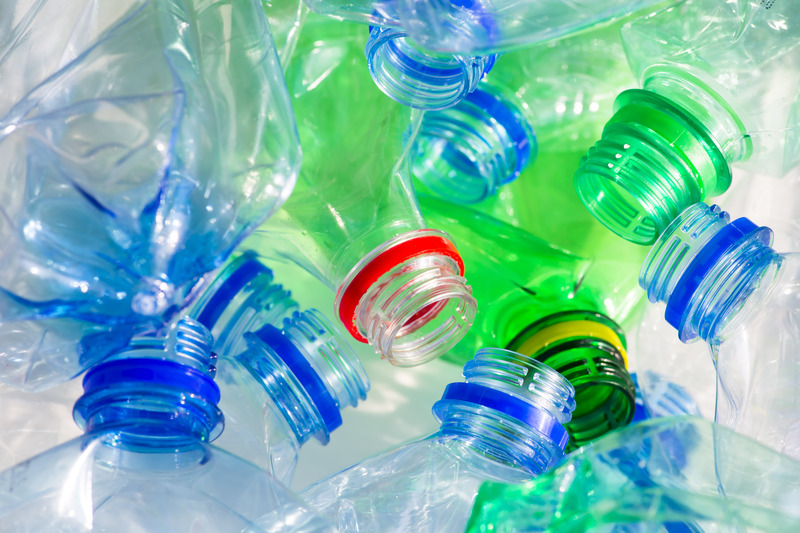Gain Insights on Reducing Personal Plastic Waste
Plastic waste has become one of the most pressing environmental issues of our time. Our reliance on single-use plastics and the omnipresence of plastic products contribute to pollution that affects our oceans, wildlife, and even human health. If you're seeking ways to reduce personal plastic waste, you are already on the right path toward a more sustainable and eco-friendly lifestyle. This comprehensive guide helps you gain insights on reducing plastic waste at home and beyond, offering practical steps, creative ideas, and essential knowledge to make a lasting difference.

Understanding the Impact of Plastic Pollution
Plastics are durable, versatile, and inexpensive--qualities that have made them immensely popular over the last century. However, their remarkable durability is also their biggest environmental drawback. Plastics don't biodegrade easily; instead, they break down into microplastics, contaminating soils, waterways, and the food chain. The consequences of excessive personal plastic waste are far-reaching:
- Damage to Marine Life: Millions of tons of plastic end up in oceans, harming fish, birds, and other marine creatures that ingest or get entangled in debris.
- Soil and Water Pollution: Plastic waste leaches harmful chemicals into soil and groundwater, threatening biodiversity and public health.
- Climate Impact: The production and incineration of plastics contribute significantly to greenhouse gas emissions.
- Health Concerns: Microplastics have been found in food, drinking water, and even air, raising concerns about human health impacts.
Why Is Personal Involvement So Important?
The scale of plastic pollution might seem overwhelming, but individual actions are crucial in driving systemic change. By focusing on how to reduce personal plastic waste, you can inspire communities, influence market demand, and contribute to global sustainability efforts.
How to Gain Insights on Reducing Plastic Waste in Everyday Life
Audit Your Plastic Use
The first step to reducing household plastic waste is awareness. Conduct a self-audit to understand your habits:
- For a week, segregate every piece of plastic you use or discard.
- Note patterns--do water bottles, snack wrappers, takeout containers or plastic bags dominate?
- List items you can replace, refuse, or reuse.
Recognizing where you generate the most plastic waste sets the stage for effective change.
Embrace the 5 R's: Refuse, Reduce, Reuse, Recycle, Rot
- Refuse: Say no to unnecessary plastics such as straws, utensils, and excessive packaging.
- Reduce: Cut down overall use by opting for bulk purchases and avoiding single-use items.
- Reuse: Choose durable, reusable alternatives for everyday items.
- Recycle: Follow local recycling guidelines for plastics that can't be avoided.
- Rot: Compost organic waste to reduce the need for plastic trash bags and packaging.
Effective Tips to Minimize Personal Plastic Waste
1. Choose Reusable Over Disposable
- Carry reusable shopping bags made from cotton, jute, or recycled materials. Keep them handy in your car or backpack.
- Opt for stainless steel or glass water bottles instead of disposable plastic bottles. This drastically cuts daily plastic consumption.
- Switch to reusable food containers and wrap sandwiches in beeswax wraps or cloth instead of cling film.
- Use reusable coffee cups and straws made from bamboo, metal, or silicone at cafes.
2. Reduce Packaging Waste
- Buy in bulk and bring your own containers to zero-waste or bulk stores.
- Choose products with minimal or compostable packaging. Support brands that prioritize sustainable packaging.
- Make your own snacks and meals to avoid packaged foods.
3. Personal Care and Cleaning Swaps
- Switch to bar soaps and shampoo bars instead of bottled versions.
- Use bamboo toothbrushes and refillable floss containers.
- Make your own cleaning products using vinegar, baking soda, and essential oils to eliminate the need for plastic bottles.
- Avoid disposable razors; choose razors with replaceable blades.
4. Sustainable Shopping Habits
- Support local farmers' markets where produce is less likely to be packaged in plastic.
- Buy loose fruits and vegetables and use mesh produce bags instead of plastic ones.
- Choose products made from recycled plastics or natural materials.
5. Rethink Clothing and Textiles
- Avoid synthetic fabrics like polyester and nylon, as they shed microplastics during washing.
- Choose organic cotton, hemp, or bamboo clothing.
- Use a microfiber filter bag or ball in your washing machine to trap microfibers and prevent them entering waterways.
6. Educate and Advocate
- Share knowledge and encourage friends and family to adopt sustainable choices.
- Advocate for plastic bag bans and corporate responsibility in your community.
- Support organizations working to reduce plastic pollution.
Uncommon Ways to Gain Insights on Reducing Personal Plastic Waste
Explore DIY Solutions
- DIY beeswax wraps: Easy-to-make at home, these wraps are a sustainable substitute for plastic cling film.
- Homemade beauty products: Use simple ingredients like coconut oil, shea butter, and essential oils to create lotions, deodorants, and more--no plastic required.
- Upcycle plastic containers: Reuse yogurt tubs or jars for organizing, gardening, or crafting.
Try "Plastic-Free" Challenges
- Join the 'Plastic-Free July' movement or impose a personal ban on certain single-use plastics for a month.
- Track your progress and reflect on challenges and successes.
- Invite your family or office to participate together.
Support Plastic-Free Innovations
- Choose compostable or edible cutlery and packaging where available.
- Invest in start-ups creating zero-waste solutions or cleaner alternatives to plastics.
How to Properly Recycle and Dispose of Plastics
Proper plastic waste management is as crucial as reduction. Not all plastics are created equal--some are recyclable, while others are destined for landfills. To make recycling effective:
- Learn Your Local Codes: Understand local rules on plastic recycling--these vary by municipality.
- Clean and Dry: Rinse out containers before recycling to prevent contamination.
- Avoid Wish-Cycling: Don't put items in the bin in hopes they're recyclable; check first!
- Drop-Off programs: Some plastics, like grocery bags or Styrofoam, require separate recycling streams--find drop-off locations nearby.
Benefits of Reducing Personal Plastic Waste
- Healthier Lifestyle: Fewer plastics in your life mean less exposure to harmful chemicals like BPA and phthalates.
- Cost Savings: Reusable products and homemade solutions save money over time.
- Environmental Impact: Each avoided plastic product prevents pollution and reduces demand for further plastic production.
- Community Well-being: Cleaner neighborhoods, parks, and waterways benefit everyone.
Overcoming Challenges and Staying Motivated
Addressing Common Barriers
- Convenience Culture: Start with manageable changes--replace one disposable item at a time.
- Availability: Search for local zero-waste shops or online alternatives if options are limited near you.
- Cost Concerns: Many sustainable products seem more expensive upfront but last much longer than single-use plastics.
Find Your Community
- Join local or online zero-waste groups for tips, swaps, and support.
- Attend workshops and events to learn new skills.
- Connect with like-minded individuals to stay accountable and motivated.
Setting Realistic Goals and Tracking Progress
- Start small: Pick two or three things to change in your daily routine first.
- Set measurable targets: For example, bring your own bags every grocery trip, or stop buying bottled water.
- Review and adjust: Reflect monthly on your progress and make new goals as habits stick.

Frequently Asked Questions on Reducing Plastic Waste
Q1: Can my individual efforts really make a difference?
Absolutely! While systemic, industry-wide changes are vital, every individual's choice adds up. Personal action reduces demand and inspires collective momentum for broader change.
Q2: How can I recycle plastics properly?
Refer to local guidelines--most municipalities offer detailed instructions online or at waste centers. Not sure? Ask neighbors, call municipal services, or check product labels.
Q3: Are biodegradable plastics a solution?
They sound promising, but many require industrial composting facilities not widely available. Prioritize actual reduction and reuse over "green" disposable plastics.
Q4: Is plastic recycling effective?
Recycling helps, but only a small fraction of plastics get recycled. Refusing and reducing plastic is more impactful, with recycling as a last resort.
Conclusion: Start Gaining Insights and Take Action on Plastic Waste
Reducing personal plastic waste is both an urgent responsibility and a rewarding journey. By analyzing your habits, making sustainable swaps, and spreading awareness, you diminish your environmental footprint and contribute to a cleaner, healthier planet. Remember: every piece of plastic not used is a step toward more sustainable living. The key is to start small, stay consistent, and inspire others to follow your example.
Now is the perfect time to gain new insights and turn your commitment into concrete action. Embrace the journey, empower your choices, and lead your community toward a future with less plastic waste!
Further Reading and Resources
- Earth Day: End Plastic Pollution
- Plastic Pollution Coalition
- Less Plastic UK
- Plastic Soup Foundation
Start today--gain insights and inspire change through every choice you make!